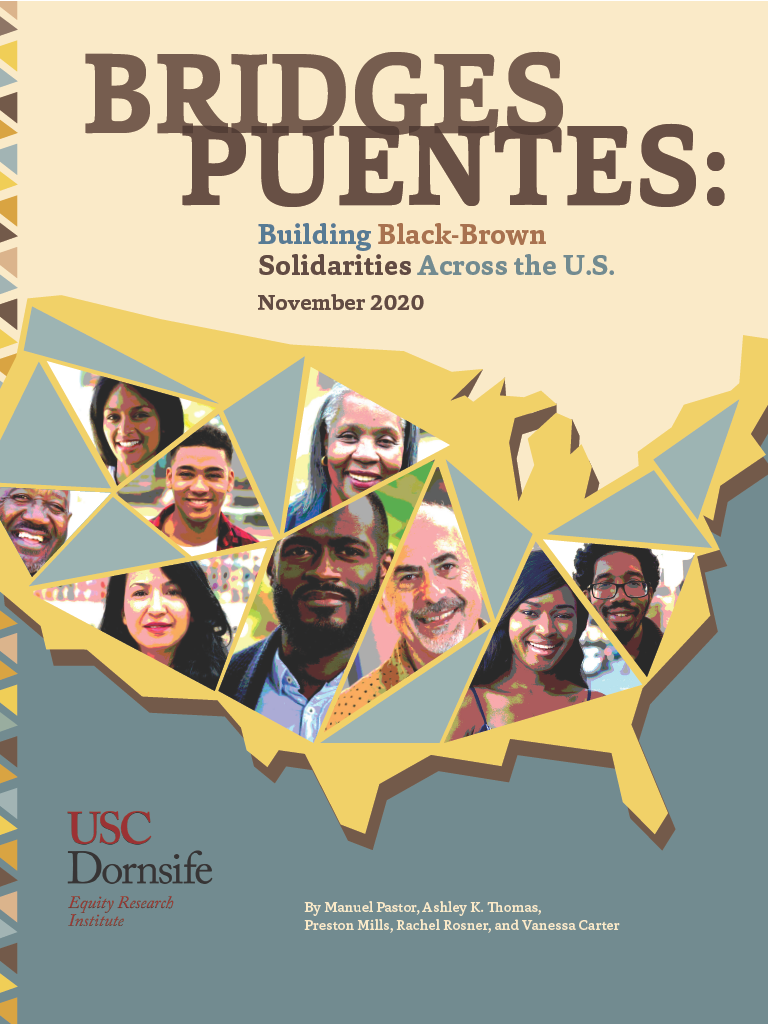
November 9, 2020
By Manuel Pastor, Ashley K. Thomas, Preston Mills, Rachel Rosner, and Vanessa Carter
The way in which demographic change is impacting our nation’s civic landscape is clear. The projection that the U.S. will become “majority minority” in 2045 is a headline gripping the national imagination—filling some with hope, roiling others with anxiety. We can go the way of national tragedies like the 2019 shooting in El Paso, Texas inspired by xenophobic fervor or towards the multiracial solidarity like that seen in the aftermath of the Pulse shooting in Orlando. The choice is ours.
Bridges|Puentes focuses on just one part of our multiracial future: Black-Latino coalition building. As the largest non-white demographic block, this potent coalition can do much for racial justice by moving the needle on quality education, political enfranchisement, decent and well-paying jobs, affordable housing, healthy environments, and more. As such, it is frequently undermined. This research looks at that dynamic in four places: Jackson, Mississippi; Milwaukee, Wisconsin; Orlando, Florida; and Oakland, California—vastly different based on their regional specificities.
From these places, we learned:
- the importance of understanding history and context as coalitions have unique regional flavors
- to center the struggle against anti-Blackness in political and community work
- that lifting up anti-Blackness forms a different sort of Latino identity that lends itself to solidarity and improving upward mobility for all
- the utility of a disciplined analysis of power that illustrates the importance of an interconnected, cross-cultural fight against oppressive systems
- that tailored and intersectional approaches to multiracial power building can be helpful and how youth are leading in that endeavor
Along the way, we include a handful of very practical recommendations for funders, organizers, policy advocates, and other racial equity stakeholders. All of this points towards the reality that Black-Latino organizing is not a sideshow, it is the main act for racial equity and structural transformation in the U.S.



